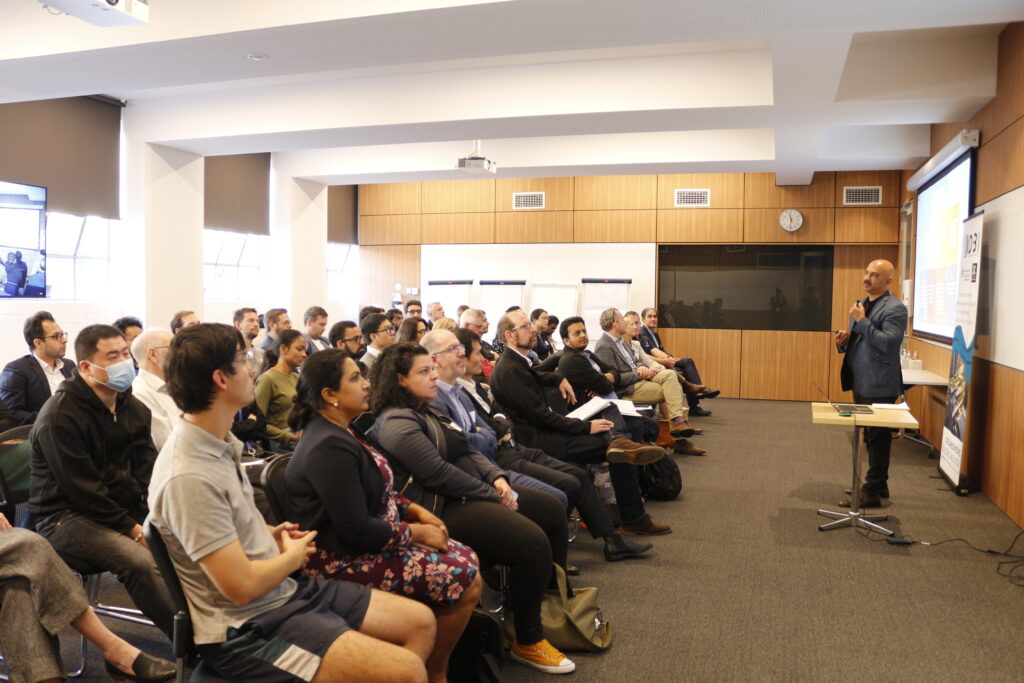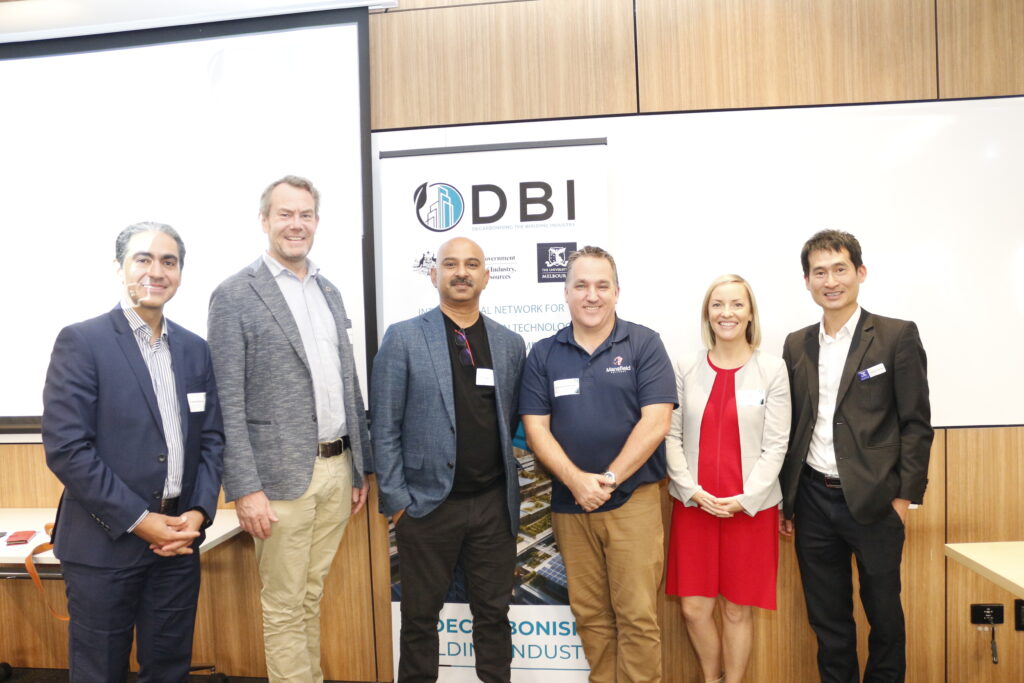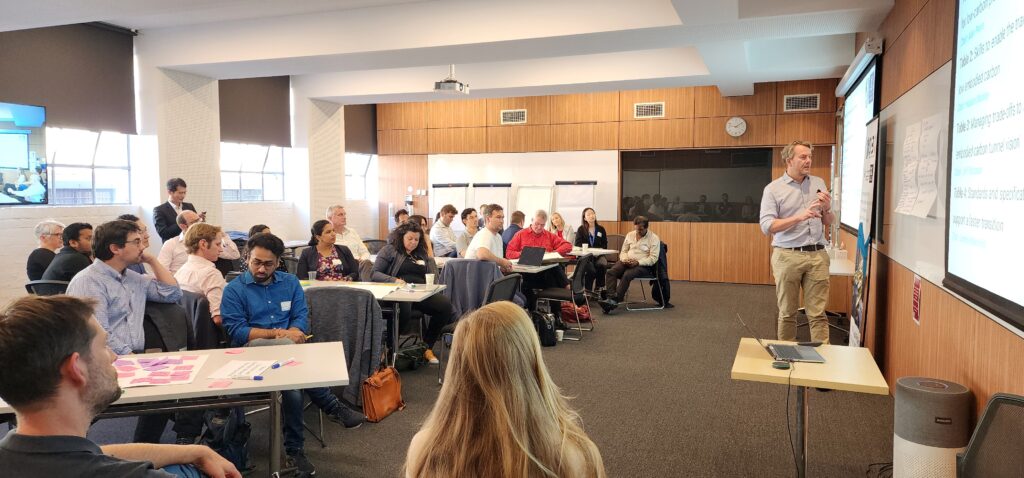Event date: March 22, 2024
The Decarbonising the Building Industry (DBI) Network recently hosted a workshop on “Embodied Carbon Framework for Australia’s Built Environment” in collaboration with the Australian Sustainable Built Environment Council (ASBEC), Materials and Embodied Carbon Leaders’ Alliance (MECLA), and National Australian Built Environment Rating System (NABERS). The event, held on March 22, 2024, in Melbourne, brought together DBI members, academics, and industry representatives to discuss the challenges and opportunities in reducing embodied carbon in the construction sector.

Morning session: Presentations
The workshop began with presentations from key stakeholders in Australia’s built environment. James Elks from NABERS discussed the development of a national standard for embodied carbon, aiming to enhance building sustainability through better design and material procurement. Hudson Worsley from MECLA introduced a bottom-up approach to addressing embodied carbon, emphasizing collaboration among stakeholders to create a circular economy. Shay Singh from the Green Building Council of Australia shared insights on Every Building Counts, a policy platform aimed at enhancing the sustainability of Australia’s built environment. Alison Scotland and Jeremy Mansfield from ASBEC highlighted the organization’s efforts to champion national initiatives to reduce embodied carbon.
Check out the presentations here in more detail.

Afternoon session: Round table discussions
The afternoon session featured four round table discussions on key topics:
- Consistent and significant demand for low-carbon products: Participants discussed the challenges of risk aversion and the need for accelerated testing protocols to support the adoption of low-carbon materials. They also explored opportunities for policy interventions and the role of prefabricated construction in improving resource efficiency.
- Skills to enable the transition to low embodied carbon: The discussion focused on the need for continuous upskilling and reskilling of professionals to adapt to new systems, materials, and practices. Participants emphasized the importance of collaboration between industry and academia to accelerate the development and application of sustainable practices.
- Managing trade-offs to avoid ’embodied carbon tunnel vision’: The round table critiqued the singular focus on minimizing embodied carbon, highlighting the need for a holistic approach that considers operational carbon efficiency, space usability, and long-term adaptability of buildings. Participants advocated for integrated design processes and advanced tools to support multi-criteria analysis.
- Standards and specifications that support a faster transition: Participants discussed the complexities surrounding the current state of standards and specifications, noting the need for a universal language and consistency across standards. They emphasized the importance of incentivising the adoption of new standards and materials, as well as shifting towards performance-based testing and standards.
Check out the round table discussions here in more detail.

Key takeaways
The DBI workshop highlighted the importance of collaboration, innovation, and a multifaceted approach to reducing embodied carbon in Australia’s built environment. Key takeaways include:
- Addressing both technical and systemic barriers through collaborative efforts
- Fostering continuous upskilling and reskilling of professionals to adapt to new systems, materials, and practices.
- Adopting a holistic approach that balances embodied carbon reduction with operational efficiency, adaptability, and long-term value
- Establishing a universal language and consistency across standards and specifications
- Incentivizing the adoption of new standards and materials, and supporting the development of alternative materials
The workshop underscored the need for a paradigm shift in how the construction industry approaches embodied carbon, advocating for a nuanced, systemic approach that prioritizes sustainability, adaptability, and the long-term value of built environments.

